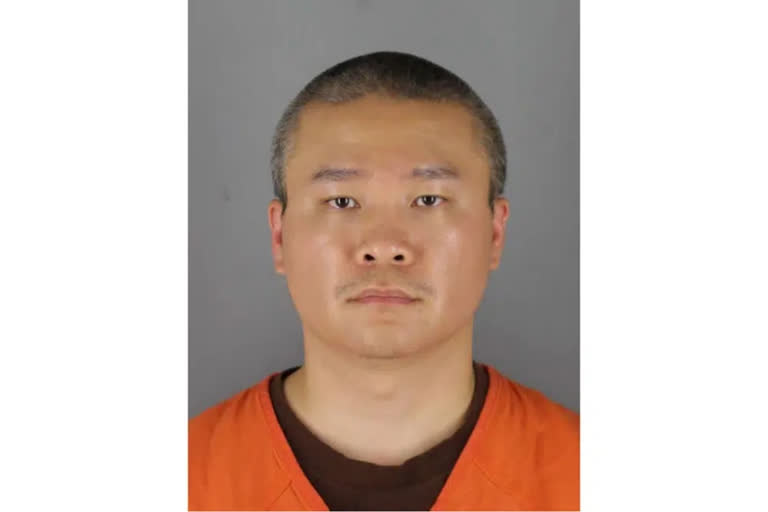Minneapolis:The attorney for a former Minneapolis police officer who held back bystanders while his colleagues restrained a dying George Floyd said in court filings Tuesday that his client is innocent of criminal wrongdoing and should be acquitted on state charges of aiding and abetting murder and manslaughter.
But prosecutors argued in their filings that Tou Thao acted without courage and displayed no compassion despite his nearly nine years of experience and that he disregarded his training even though he could see Floyd's life slowly ebbing away. Tuesday was the deadline for prosecutors and defence attorneys to file final written arguments in the case of Thao, the last of the four former officers facing judgement in Floyd's killing.
The state and federal cases against Derek Chauvin and the two other officers involved have largely been resolved, except for Chauvin's appeal of his murder conviction. But Thao asked Hennepin County Judge Peter Cahill to decide, based on stipulated evidence, whether he is guilty of aiding and abetting murder and manslaughter in Floyd's killing, rather than going to trial. Floyd, a Black man, died May 25, 2020, after Chauvin, who is white, pinned him to the ground with his knee on Floyd's neck for 9 1/2 minutes. A bystander video captured Floyd's fading cries of I can't breathe.
Floyd's murder touched off protests around the world and forced a national reckoning with police brutality and racism. Unlike the other three former officers, Thao has maintained that he did nothing wrong. When he rejected a plea deal last August, he said it would be lying to plead guilty. Defence attorney Robert Paule argued in his written closing argument that the state has failed to prove beyond a reasonable doubt that Thao knew that Chauvin was committing a crime, nor that Thao intended to aid in a crime. The death of George Floyd was a tragedy, Paule wrote.
Yet the fact that a tragic death occurred does not transfer it into a criminal act. Thao is innocent of the charges against him because he did not intend that his specific actions were done to assist in the commission of a crime. Every one of Thao's actions was done based upon the training he received from the Minneapolis Police Department. Paule argued that Thao reasonably believed that Floyd was experiencing a controversial set of symptoms known as excited delirium and that the actions he took at the scene were with the intention of helping to get Floyd medical attention faster because he was trained to view excited delirium as life threatening.
He said Thao was not aware that Floyd was not breathing or had no pulse. Prosecutor Matthew Frank disputed that defence, writing that even witnesses who believe excited delirium exists testified previously that Floyd displayed none of the symptoms. Thao was aware that his three colleagues were on top of Floyd, and were restraining Floyd in the prone position, Frank wrote. Thao knew that this prone restraint was extremely dangerous because it can cause asphyxia the inability to breathe the exact condition from which Floyd repeatedly complained he was suffering. Yet Thao made the conscious decision to aid that dangerous restraint: He actively encouraged the other three officers, and assisted their crime by holding back concerned bystanders.
